Related Research Articles

Red River is a 1948 American Western film, directed and produced by Howard Hawks and starring John Wayne and Montgomery Clift. It gives a fictional account of the first cattle drive from Texas to Kansas along the Chisholm Trail. The dramatic tension stems from a growing feud over the management of the drive between the Texas rancher who initiated it (Wayne) and his adopted adult son (Clift).
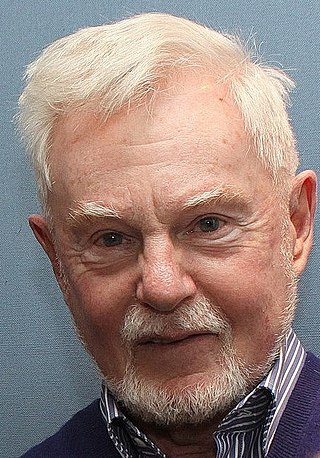
Sir Derek George Jacobi is an English actor. Jacobi is known for his work at the Royal National Theatre and for his film and television roles. He has received numerous accolades including a BAFTA Award, two Olivier Awards, two Primetime Emmy Awards, two Screen Actors Guild Awards, and a Tony Award. He was given a knighthood for his services to theatre by Queen Elizabeth II in 1994.

The Man Who Shot Liberty Valance is a 1962 American Western film directed by John Ford and starring John Wayne and James Stewart. The screenplay by James Warner Bellah and Willis Goldbeck was adapted from a 1953 short story written by Dorothy M. Johnson. The supporting cast features Vera Miles, Lee Marvin, Edmond O'Brien, Andy Devine, John Carradine, Woody Strode, Strother Martin and Lee Van Cleef.
Denver Dell Pyle was an American film and television actor and director. He was well known for a number of TV roles from the 1960s through the 1980s, including his portrayal of Briscoe Darling in several episodes of The Andy Griffith Show, as Jesse Duke in The Dukes of Hazzard from 1979 to 1985, as Mad Jack in the NBC television series The Life and Times of Grizzly Adams, and as the titular character's father, Buck Webb, in CBS's The Doris Day Show. In many of his roles, he portrayed either authority figures, or gruff, demanding father figures, often as comic relief. Perhaps his most memorable film role was that of Texas Ranger Frank Hamer in the movie Bonnie and Clyde (1967), as the lawman who relentlessly chased down and finally killed the notorious duo in an ambush.
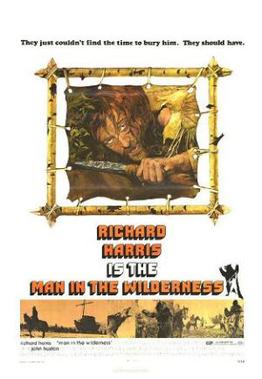
Man in the Wilderness is a 1971 American revisionist Western film about a scout for a group of mountain men who are traversing the Northwestern United States during the 1820s. The scout is mauled by a bear and left to die by his companions. He survives and recuperates sufficiently to track his former comrades, forcing a confrontation over his abandonment. The story is loosely based on the life of Hugh Glass. It stars Richard Harris as Zachary Bass and John Huston as Captain Henry.

Vera June Miles is an American retired actress, best known for playing Lila Crane in the Alfred Hitchcock film Psycho, later reprising the role in its sequel, Psycho II.
The title character in a narrative work is one who is named or referred to in the title of the work. In a performed work such as a play or film, the performer who plays the title character is said to have the title role of the piece. The title of the work might consist solely of the title character's name – such as Michael Collins or Othello – or be a longer phrase or sentence – such as The Autobiography of Malcolm X, Alice in Wonderland, or The Adventures of Tom Sawyer. The title character is commonly – but not necessarily – the protagonist of the story. Narrative works routinely do not have a title character, and there is some ambiguity in what qualifies as one.
Albert Horton Foote Jr. was an American playwright and screenwriter. He received Academy Awards for his screenplays for the 1962 film To Kill a Mockingbird, which was adapted from the 1960 novel of the same name by Harper Lee, and his original screenplay for the film Tender Mercies (1983). He was also known for his notable live television dramas produced during the Golden Age of Television.
Hallie Kate Eisenberg is an American former child actress, best known for being "The Pepsi Girl" in a series of Pepsi commercials, as Marie Alweather in Paulie, and her role as Erika "Erk" Tansy in How to Eat Fried Worms.
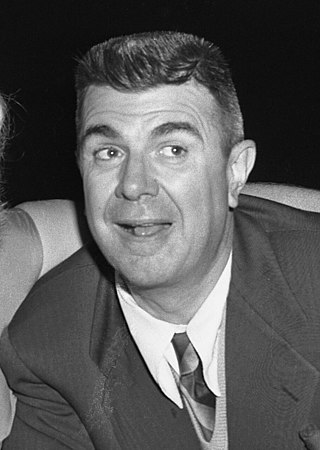
Ken Murray was an American comedian, actor, radio and television personality and author.

Willis Ben Bouchey was an American character actor who appeared in almost 150 films and television shows. He was born in Vernon, Michigan, but raised by his mother and stepfather in Washington state.
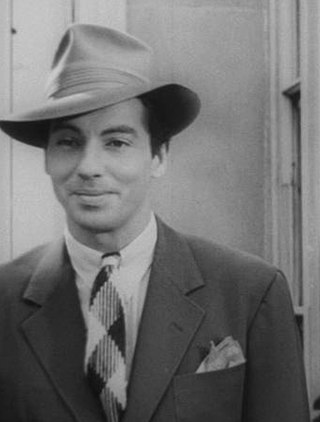
Captain Carleton Scott Young was an American character actor who was known for his deep voice.
Alan MacKenzie Howard, CBE was an English actor. He was a member of the Royal Shakespeare Company from 1966 to 1983 and played leading roles at the Royal National Theatre between 1992 and 2000.
Dorothy Marie Johnson was an American writer best known for her Western fiction.
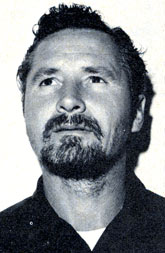
Charles Bert Hayward was an American motion picture stuntman and actor. He was associated particularly with the films of John Wayne. He doubled for most of the great Western and action stars of the 1950s-1980s.

Irene is a 1940 American musical film produced and directed by Herbert Wilcox. The screenplay by Alice Duer Miller is based on the libretto of the 1919 stage musical Irene by James Montgomery, who had adapted it from his play Irene O'Dare. The score features songs with music by Harry Tierney and lyrics by Joseph McCarthy.
Jethro Compton is a British writer, director and theatre producer. He was educated at the University of York between 2006 and 2009 in English Literature. His most notable production to date has been the world première of The Man Who Shot Liberty Valance .

The Boy James is a play written by Alexander Wright that opened in 2010 at the Edinburgh Fringe Festival and featured as part of Belt Up Theatre's 2010 Edinburgh season, The House Above.

Henry Lloyd-Hughes is an English actor. He is known for his roles in Harry Potter and the Goblet of Fire (2005), Unrelated (2007), The Inbetweeners (2008–2010), Miliband of Brothers (2010), Weekender (2011), Anna Karenina (2012), Parade's End (2012), and Indian Summers (2015). As of 2018 he voices Flynn Fairwind in World of Warcraft: Battle for Azeroth. In 2021, he appeared as Sherlock Holmes in the Netflix series, The Irregulars.
"(The Man Who Shot) Liberty Valance" is a song written by Burt Bacharach and Hal David, which was released by Gene Pitney in 1962. It spent 13 weeks on the Billboard Hot 100 chart, peaking at No. 4, while reaching No. 2 on Canada's CHUM Hit Parade, and No. 4 on New Zealand's "Lever Hit Parade".
References
- ↑ "Man Who Shot Liberty Valance, The" at Samuel French.
- 1 2 "The Man Who Shot Liberty Valance" at Oberon Books.
- 1 2 "The Man Who Shot Liberty Valance" cast, Park Theatre.
- ↑ Charles Spencer, "The Man Who Shot Liberty Valance, Park Theatre, review: 'superb'", The Telegraph, 19 May 2014.
- ↑ "The Man Who Shot Liberty Valance" - Quotes & Reviews, Park Theatre.
- ↑ Theodora Munroe, "The Man Who Shot Liberty Valance at the Park", The Upcoming, 19 May 2014.
- ↑ Tom Wicker, "The Man Who Shot Liberty Valance" review, Time Out London, 19 May 2014.